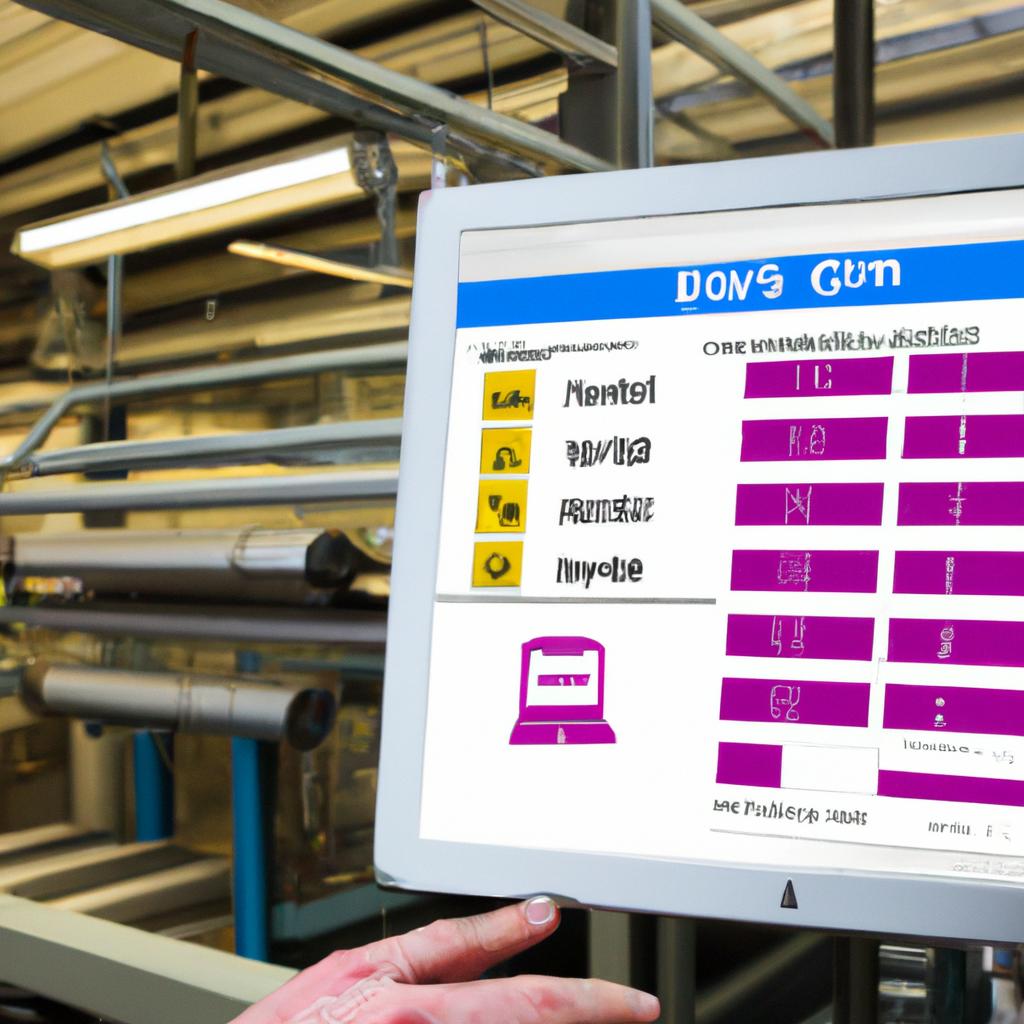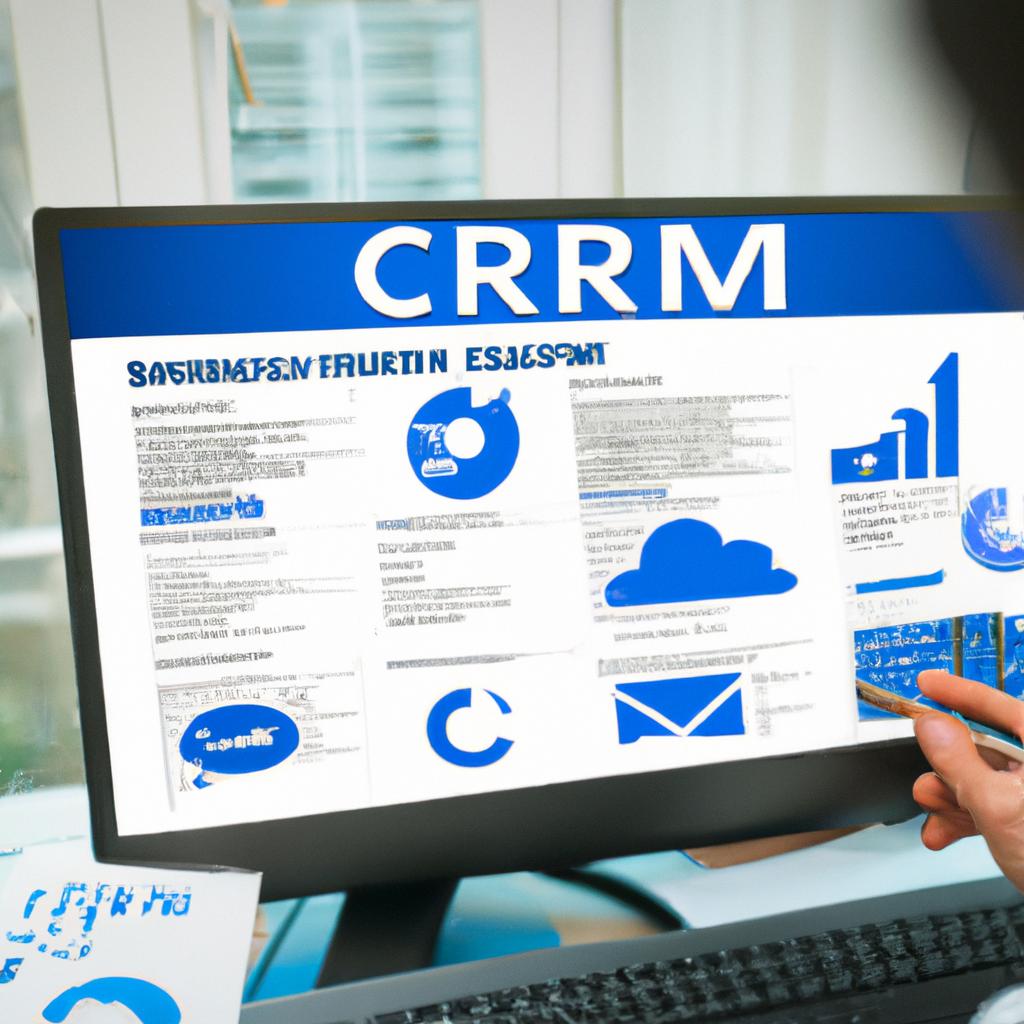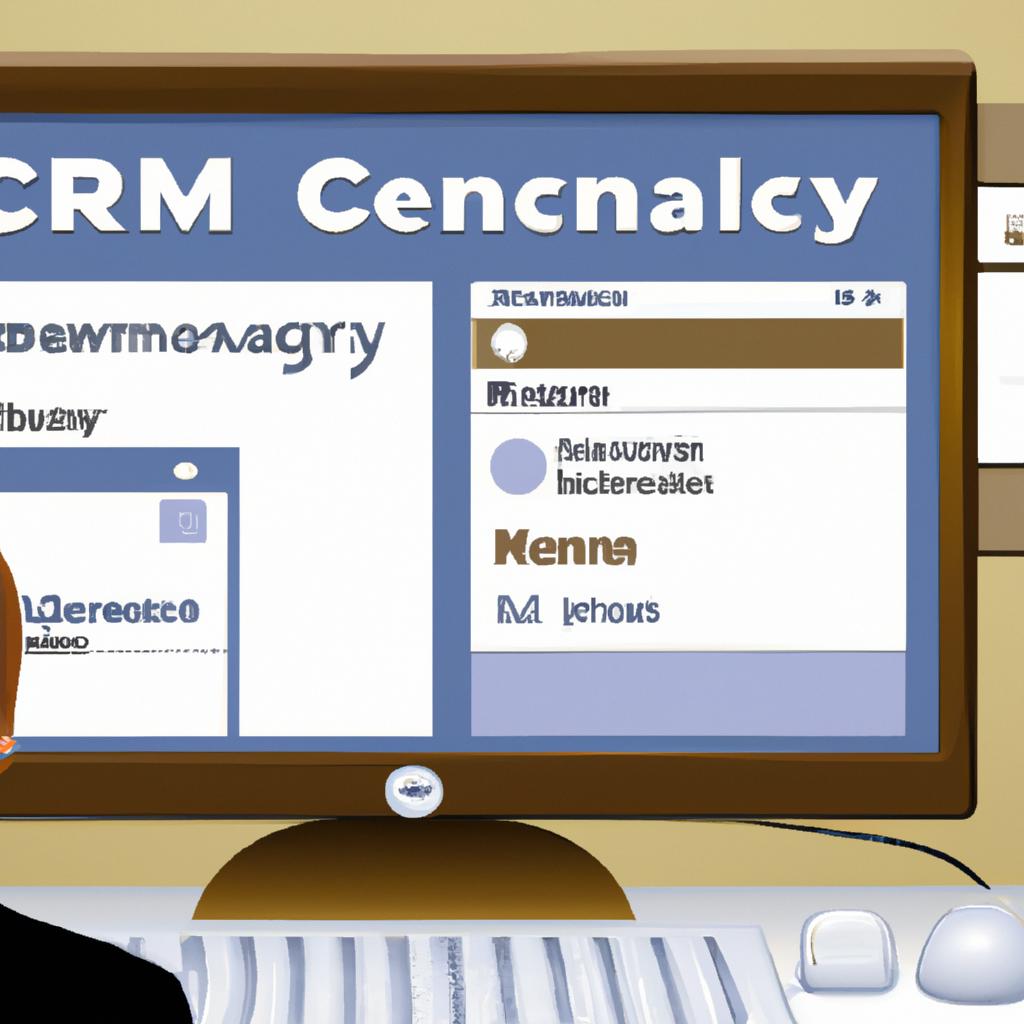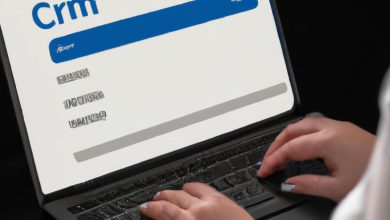The Ultimate Guide to ERP and CRM Software: Benefits and Differences

Are you looking for ways to streamline your business operations and improve customer relationships? Look no further than erp and crm software. These two systems work together to provide a comprehensive solution for managing your business processes and customer interactions.
What is ERP software?
ERP stands for Enterprise Resource Planning. This software is designed to integrate various business functions and processes, such as accounting, inventory management, human resources, and supply chain management. It allows businesses to automate and streamline their operations, reducing the risk of errors and improving efficiency.
What is CRM software?
CRM stands for Customer Relationship Management. This software is designed to manage customer interactions, including sales, marketing, and customer service. It allows businesses to centralize customer data and track customer interactions, providing insights into customer behavior and preferences.
Why use ERP and CRM software together?
While ERP and CRM software serve different purposes, they are complementary systems that work best when used together. By integrating these systems, businesses can gain a holistic view of their operations and customer interactions. This allows them to make more informed decisions, improve communication between departments, and enhance customer experiences.
Brief overview of the article
In this article, we will delve into the features and benefits of ERP and CRM software. We will also explore the differences between these systems and how they work together. Additionally, we will provide tips for choosing the right ERP and CRM software for your business and best practices for implementation. By the end of this article, you will have a better understanding of how ERP and CRM software can improve your business processes and customer relationships.
Understanding ERP Software

When it comes to managing business processes, ERP software is a game-changer. Here’s what you need to know about this powerful system.
Definition and Explanation of ERP
ERP software is a suite of tools that integrates various business processes into a single system. It allows businesses to automate and streamline their operations, reducing the risk of errors and improving efficiency.
At its core, ERP software is designed to provide a centralized view of an organization’s data and processes. This allows businesses to gain insights into their operations, identify areas for improvement, and make better decisions.
Key Features and Functionalities
ERP software typically includes a range of features and functionalities, including:
- Accounting and financial management
- Inventory management
- Supply chain management
- Human resources management
- Customer relationship management
- Business intelligence and reporting
These features are designed to work together seamlessly, providing a comprehensive solution for managing business processes.
Benefits of Using ERP Software
By implementing ERP software, businesses can gain a range of benefits, including:
- Improved efficiency and productivity
- Better decision-making through access to real-time data
- Reduced risk of errors and data inconsistencies
- Enhanced collaboration and communication between departments
- Increased visibility into business operations
Overall, ERP software can help businesses streamline their operations, reduce costs, and improve their bottom line.
Differences Between ERP and CRM Software

While ERP and CRM software are designed to manage different aspects of a business, they share some similarities. However, they also have distinct differences that set them apart. In this section, we will explore the differences between ERP and CRM software and how they complement each other.
Overview of the Main Differences
ERP software focuses on managing and automating business processes, such as inventory management, accounting, and human resources. It is designed to help businesses streamline their operations and improve efficiency. On the other hand, CRM software focuses on managing customer interactions, including sales, marketing, and customer service. It is designed to help businesses improve customer relationships and increase customer retention.
How They Complement Each Other
While ERP and CRM software serve different purposes, they share some common goals. Both systems aim to improve efficiency and productivity, reduce costs, and enhance customer experiences. By integrating these systems, businesses can gain a more complete view of their operations and customer interactions. This allows them to make more informed decisions, improve communication between departments, and provide better customer service.
Examples of Industries That Use Them Together
Many industries can benefit from using ERP and CRM software together. For example, manufacturing companies can use ERP software to manage their inventory and production processes while using CRM software to track customer orders and interactions. Retail companies can use ERP software to manage their supply chain and inventory while using CRM software to manage their customer relationships and loyalty programs. Overall, integrating ERP and CRM software can benefit businesses across various industries by providing a comprehensive solution for managing their operations and customer interactions.
Choosing the Right ERP and CRM Software for Your Business
Investing in ERP and CRM software can provide significant benefits to your business, but choosing the right software can be overwhelming. Here are some factors to consider when selecting the right ERP and CRM software for your business:
Factors to consider when choosing
-
Business needs: Identify your business needs and goals to determine which features and functionalities are necessary for your business.
-
Scalability: Ensure that the software can accommodate your business growth and future needs.
-
Cost: Consider the cost of the software, including implementation, maintenance, and updates.
-
Integration: Determine how well the software integrates with your current systems and other software you may need in the future.
-
User-friendliness: Choose software that is easy to use and navigate for your employees.
Best practices for implementation
Once you have chosen the right software for your business, it is important to implement it correctly to maximize its benefits. Here are some best practices for implementing ERP and CRM software:
-
Plan ahead: Develop a comprehensive plan for implementation, including timelines, milestones, and resources.
-
Train employees: Provide adequate training to ensure that employees can use the software effectively.
-
Data migration: Ensure that your data is migrated accurately and securely to the new system.
-
Test thoroughly: Test the software thoroughly before going live to identify and address any issues.
Benefits of a proper integration
Integrating ERP and CRM software can provide numerous benefits to your business, including:
-
Improved efficiency and productivity: Integrating systems eliminates the need for manual data entry and provides real-time data, reducing errors and improving productivity.
-
Enhanced visibility: A unified system provides a holistic view of your business operations and customer interactions, allowing you to make more informed decisions.
-
Better customer experiences: Integrating CRM and ERP software can improve customer experiences by providing personalized and timely interactions.
By considering these factors and implementing best practices, you can choose the right ERP and CRM software for your business and maximize its benefits.
Conclusion
In conclusion, ERP and CRM software can revolutionize the way your business operates. By automating and streamlining your operations with ERP software, you can reduce errors and improve efficiency. By centralizing customer data and tracking interactions with CRM software, you can gain insights into customer behavior and preferences and enhance customer experiences.
While ERP and CRM serve different purposes, they are complementary systems that work best when used together. By integrating these systems, businesses can gain a holistic view of their operations and customer interactions, making more informed decisions and improving communication between departments.
When choosing ERP and CRM software, it’s essential to consider factors such as your business size, industry, and budget. Implementing these systems can also be complex, so it’s vital to follow best practices for implementation and integration.
Overall, ERP and CRM software can help your business reduce costs, improve productivity, and enhance customer relationships. By investing in these systems, you can position your business for long-term success and growth.
Conclusion: So above is the The Ultimate Guide to ERP and CRM Software: Benefits and Differences article. Hopefully with this article you can help you in life, always follow and read our good articles on the website: nettruyen.dev



